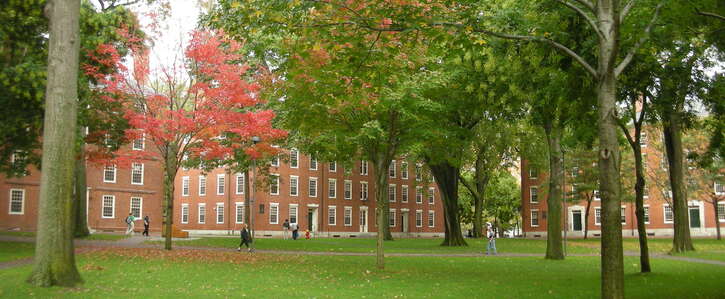50 signatures reached
To: Harvard University
Harvard, Pay All Your Workers

We, the undersigned Harvard students, faculty, staff, and community members, are writing to urge you to guarantee full pay for all employees, including subcontracted and temporary employees, who will be laid off or face hours cuts due to COVID-19. Currently, many workers at Harvard face an immediate loss of pay and will be unable to make ends meet in the midst of this crisis.
As Harvard shuts down operations to protect the public’s health, it must take steps to ensure that all university employees — including subcontracted and temporary employees — can support and care for themselves and their families during this global pandemic. To that end, we were glad to see that the university will pay most directly-hired hourly employees who can no longer work on campus or remotely for at least 30 days, and we hope that the university will continue to pay all employees at least for the remainder of the Spring semester.
However, many workers are currently excluded from this policy. For instance, the university administration has refused to guarantee these 30 days of pay to subcontracted dining and catering workers at Harvard Medical School, Harvard Law School, Harvard Business School, and the Graduate School of Design, as well as at the Science Center’s Clover Cafe and the School of Education's Rebecca's Cafe. In withholding COVID-19 pay from these workers, the university is violating its own Wage and Benefits Parity Policy, under which subcontracted dining employees are entitled to the same compensation and benefits as their directly-hired coworkers. Likewise, Harvard has so far refused to guarantee these 30 days of pay to subcontracted security guards, custodians, and recreation employees. (Fortunately, security guards and custodians have clauses in their contracts requiring that pay be maintained during an emergency; Harvard must uphold these provisions during this epidemic.) Moreover, while Harvard has committed to paying graduate student workers for the remainder of the Spring 2020 semester, it has not made the same commitment for undergraduate student workers. These are just a few examples of workers across Harvard who are facing an immediate loss of income in addition to the strain of COVID-19. These income shocks make it more difficult for workers and their families to stay healthy, remain at home to avoid spreading the virus, and follow related guidance from public health authorities and from the university itself.
As Harvard shuts down operations to protect the public’s health, it must take steps to ensure that all university employees — including subcontracted and temporary employees — can support and care for themselves and their families during this global pandemic. To that end, we were glad to see that the university will pay most directly-hired hourly employees who can no longer work on campus or remotely for at least 30 days, and we hope that the university will continue to pay all employees at least for the remainder of the Spring semester.
However, many workers are currently excluded from this policy. For instance, the university administration has refused to guarantee these 30 days of pay to subcontracted dining and catering workers at Harvard Medical School, Harvard Law School, Harvard Business School, and the Graduate School of Design, as well as at the Science Center’s Clover Cafe and the School of Education's Rebecca's Cafe. In withholding COVID-19 pay from these workers, the university is violating its own Wage and Benefits Parity Policy, under which subcontracted dining employees are entitled to the same compensation and benefits as their directly-hired coworkers. Likewise, Harvard has so far refused to guarantee these 30 days of pay to subcontracted security guards, custodians, and recreation employees. (Fortunately, security guards and custodians have clauses in their contracts requiring that pay be maintained during an emergency; Harvard must uphold these provisions during this epidemic.) Moreover, while Harvard has committed to paying graduate student workers for the remainder of the Spring 2020 semester, it has not made the same commitment for undergraduate student workers. These are just a few examples of workers across Harvard who are facing an immediate loss of income in addition to the strain of COVID-19. These income shocks make it more difficult for workers and their families to stay healthy, remain at home to avoid spreading the virus, and follow related guidance from public health authorities and from the university itself.
Why is this important?
In a letter to the Harvard community, President Bacow wrote, “I am proud to be a member of a community where people put the greater good above their own self-interest;” and he urged students, faculty, and staff to “temper increased distance with deeper care for one another.”
In this time of crisis, Harvard should put the good of its employees ahead of the university’s narrow budgetary interests. Harvard should lead in demonstrating a spirit of care by ensuring that all workers at this university, whether directly hired or subcontracted, will be paid for the rest of the semester so that they can weather this pandemic.
In this time of crisis, Harvard should put the good of its employees ahead of the university’s narrow budgetary interests. Harvard should lead in demonstrating a spirit of care by ensuring that all workers at this university, whether directly hired or subcontracted, will be paid for the rest of the semester so that they can weather this pandemic.

